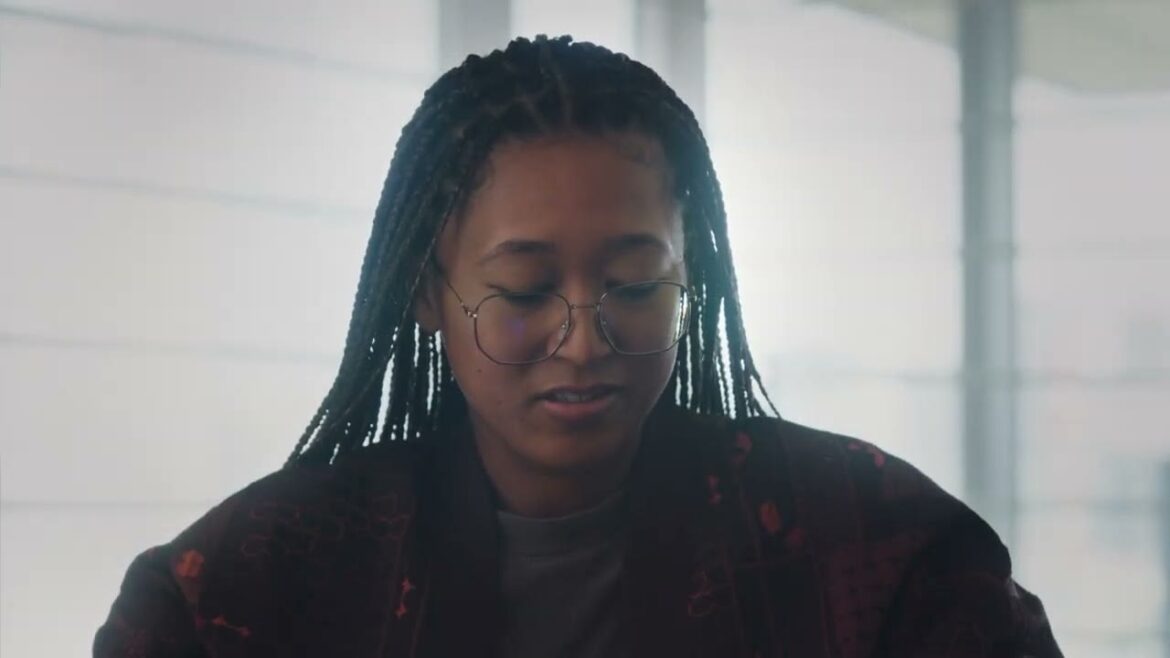Naomi Osaka is world-famous as one of the greatest and most dominant sportswomen of our time. A four-time Grand Slam title holder and a global following, Osaka is an international tennis superstar. Beneath the winning, the success, the victories, and the spotlight is an extremely private battle that Osaka decided to share with the world.
In her new film, Naomi Osaka: The Second Set, premiering on Tubi August 24, 2025, the 27-year-old tennis superstar candidly talks about her mental battle with postpartum depression following the birth of her daughter, Shai, in 2023. Not only is she candid enough to get us informed about an illness suffered by millions of women worldwide, but she also provides evidence of her ongoing fight for awareness of mental health problems.
Naomi Osaka’s Tearful Admission
In a latest video she purchased with People, Naomi Osaka reads from a personal letter that she had written to herself when she was at rock bottom.
She confesses:
“To be honest, I also had really bad postpartum, and I didn’t know how to deal with it that well.”
The tennis great recounts that although a group of mothers had informed her of postpartum depression, she believed that learning about it would immunize her against going through it.
Before giving birth, several people warned me of postpartum, but in my mind, I had assumed that since I was so informed about it, I would just skip the symptoms altogether.
The Agony of Motherhood
Motherhood is typically a time of celebratory life, but for some, it is also accompanied by unexpected difficulties. Naomi Osaka recalls being overwhelmed by the deluge of affection for her child and also tormented by exhaustion and gloom induced by depression.
She says:
“There isn’t a world where I’d want my daughter to believe her arrival is anything besides the best thing that ever happened to me. But I was half myself at all times of day in those first months.”
Postpartum depression affects roughly 1 of every 8 women following childbirth, reports the Centers for Disease Control and Prevention (CDC). While common, it is a stigmatized, little-talked-about illness, making Osaka’s admission so remarkable.
“I Felt Like I Lost Myself”
Perhaps most poignant, however, is Osaka’s description of how postpartum depression made her lose herself.
“I lost my sense of who I was. Everyone else had transitioned, and they were all living in color. My world was still in gray.”
These are the words that most accurately describe the loneliness and emptiness that postpartum depression produces, even in a woman who appears tough and successful to the world.
Naomi Osaka’s Background on Mental Health Advocacy
Naomi Osaka is used to hearing her name spoken when the topic is mental health. She made headlines in 2021 when she withdrew from the French Open, prioritizing her health over competing.
She wrote at the time in Time magazine:
“It’s OK to not be OK, and it’s OK to talk about it.”
Her candor began a worldwide conversation regarding mental illness in athletes and inspired numerous of her followers, as well as other sports personalities, to speak out about their own struggles. The empathy she found from going public convinced her that her candor truly made a difference.
Currently speaking out on postpartum depression, Osaka is carrying that activism over into an even more personal domain: motherhood.
Naomi Osaka shares a child with rapper Cordae, her former boyfriend. The two separated in January 2025, she revealed, following a couple of years of dating.
Naomi Osaka Won’t Back Down
Even after personal setbacks, Osaka has not given up on pursuing a professional tennis career and motherhood. Her experience is no different from any other woman struggling to balance work, family, and self with psychiatric illness.
Why Naomi Osaka’s Story Matters
Naomi Osaka’s candid confessions are no celebrity mea culpa; they’re a warning sign. Her story highlights the need for:
Normalize the conversation about postpartum depression.
Provide new mothers with improved support systems.
Talk about mental illness openly.
Millions of silent suffering women, thinking they are alone. By speaking out about her experiences, Osaka is sending a very powerful message: you are never alone, and it’s okay to seek help.
The Impact of “Naomi Osaka: The Second Set”
The upcoming documentary will be Osaka’s most personal film as an athlete. Her fans will see beyond her professional life as a tennis player but as a mother learning to navigate vulnerability, pain, and healing.
It is a close-to-life, raw depiction of her life, an eye-opener that champions, like the rest of us, are human beings.
Conclusion: A Champion On and Off the Court
Naomi Osaka speaking so candidly about her postpartum depression can only serve to assist in another part of her legacy. It shows that her strength extends far more than the tennis court.
Being so candid about it makes her an inspiration, not just for players, but for those who are struggling in life.
With “Naomi Osaka: The Second Set” debuting on August 24, 2025, viewers get a movie that’s as much about sports as it is a celebration of courage, love, and discovering the resilience to stand up and have one’s say.
Naomi Osaka has become more than just a champion but a beacon of hope for millions of people across the globe.


AloJapan.com